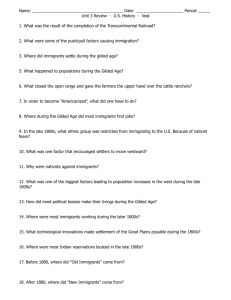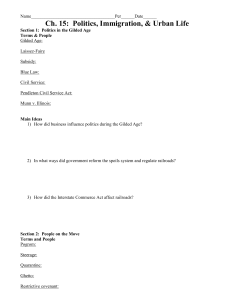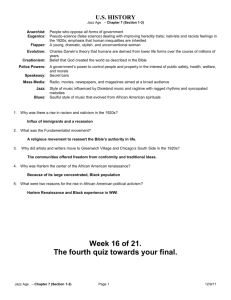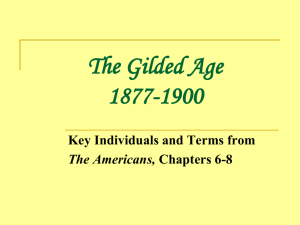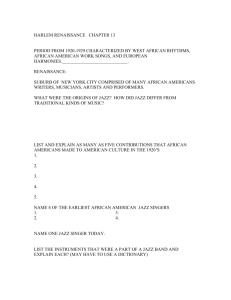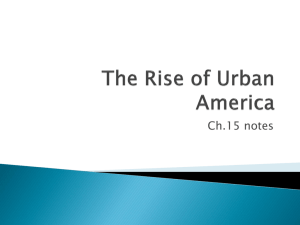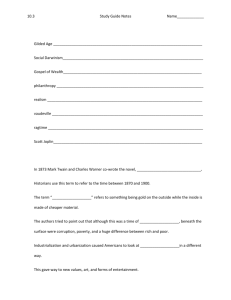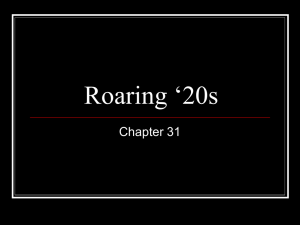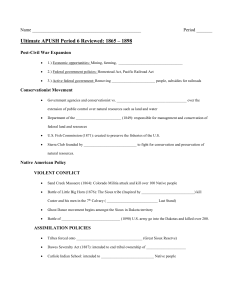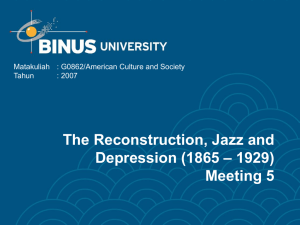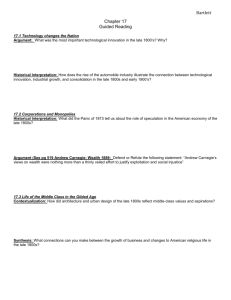Chapter 20 Review: Immigration & Urbanization
advertisement
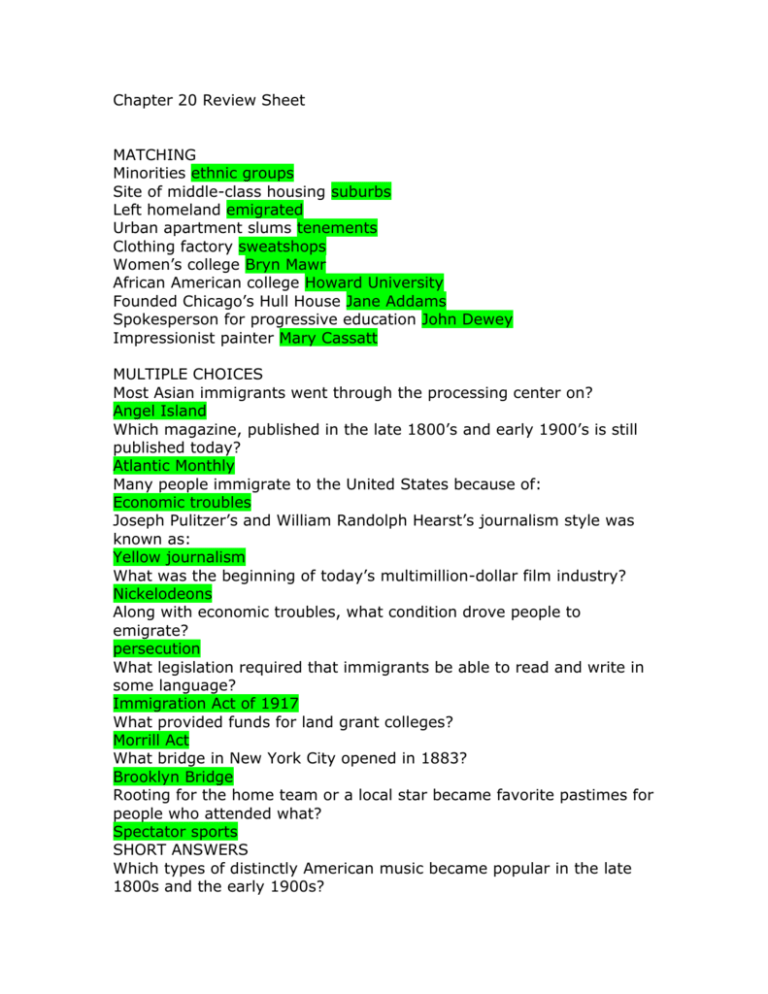
Chapter 20 Review Sheet MATCHING Minorities ethnic groups Site of middle-class housing suburbs Left homeland emigrated Urban apartment slums tenements Clothing factory sweatshops Women’s college Bryn Mawr African American college Howard University Founded Chicago’s Hull House Jane Addams Spokesperson for progressive education John Dewey Impressionist painter Mary Cassatt MULTIPLE CHOICES Most Asian immigrants went through the processing center on? Angel Island Which magazine, published in the late 1800’s and early 1900’s is still published today? Atlantic Monthly Many people immigrate to the United States because of: Economic troubles Joseph Pulitzer’s and William Randolph Hearst’s journalism style was known as: Yellow journalism What was the beginning of today’s multimillion-dollar film industry? Nickelodeons Along with economic troubles, what condition drove people to emigrate? persecution What legislation required that immigrants be able to read and write in some language? Immigration Act of 1917 What provided funds for land grant colleges? Morrill Act What bridge in New York City opened in 1883? Brooklyn Bridge Rooting for the home team or a local star became favorite pastimes for people who attended what? Spectator sports SHORT ANSWERS Which types of distinctly American music became popular in the late 1800s and the early 1900s? John Philip Sousa composed many rousing marches. African American musicians in New Orleans developed an entirely new kind of musicjazz. Jazz combined elements of work songs, gospel music, spirituals and African rhythms. Related to jazz was ragtime music. One of the best-known ragtime composers is Scott Joplin. Also, great singers and conductors came from all over the world to perform at New York’s Metropolitan Opera House/ Symphony orchestras of New York, Boston and Philadelphia were among the worlds finest. Why were the late 1800’s known as the Gilded Age? The term gilded refers to something covered with a thin layer of gold and became associated with the late 1800s because of both the extravagant wealth of the time and the terrible poverty that lay underneath.
